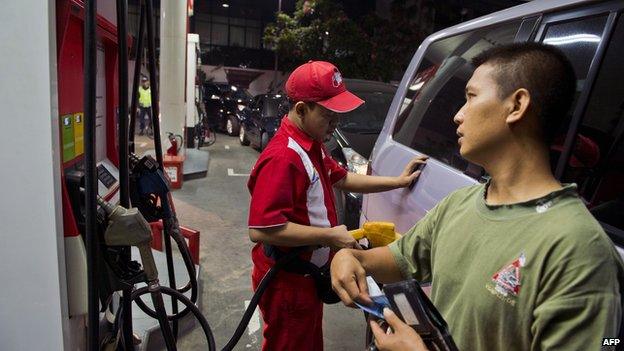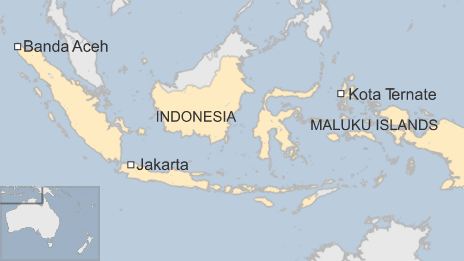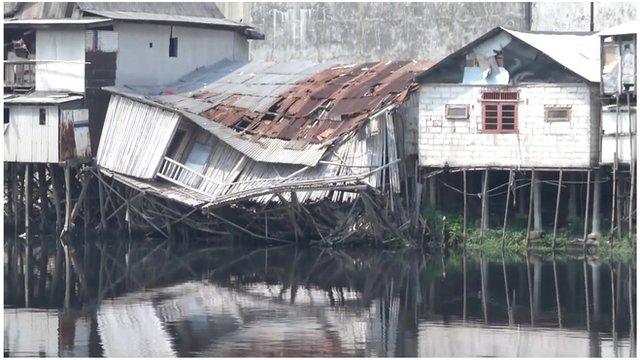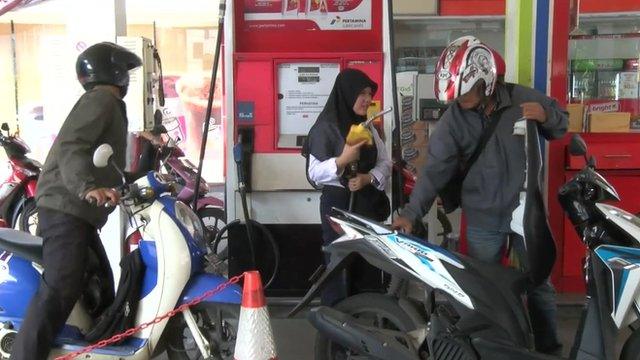Indonesia raises fuel prices by more than 30%
- Published

The Indonesian government has increased fuel prices by more than 30% in an attempt to save the economy more than $8bn (£5bn) in 2015.
Prices were raised by 2,000 rupiah ($0.16; £0.10) per litre, with gasoline now costing 8,500 rupiah and diesel 7,500 rupiah.
The subsidised fuel prices in Indonesia are among the cheapest in the world.
The unpopular move sparked small protests and long queues at petrol stations in the capital, Jakarta.
Previous price increases have sparked violent protests and reports said young people had clashed with police at a demonstration hotspot before the announcement on Monday.
New President Joko Widodo, who took office last month, said the increase would bolster government finances and help with the nation's trade imbalance.
"The country has needed a budget for infrastructure, healthcare and education but instead spent it on subsidising fuel," he told reporters on Monday.
Indonesia's $23bn fuel subsidy bill is the main reason behind its budget deficit. It is also behind the nation's trade imbalance as Indonesia imports much of its fuel.
The economy also grew at the slowest pace in five years in the third quarter at 5.01%, compared to a year ago.
Rate rise?
The rise in fuel prices could push up inflation to 7.3% this year and the impact would last until next year, the government said.
Inflation jumped to nearly 10% in mid-2013 after fuel prices were increased.
Economists said the country's central bank, Bank Indonesia, might need to increase interest rates this month to cope with the rising inflation.
Bank Indonesia has not changed the benchmark rate since November of last year.

Analysis: Pinta Karana, Editor, BBC Indonesia
The fuel price rise was not a big surprise, because President Joko Widodo had repeatedly made the statement even during his election campaign.
People's reactions to the fuel price increase are mixed. Some people understand the reason behind it, which is to develop welfare sectors, including health and education, but some question why the government made the decision to raise the fuel price when global oil prices are in a decline.
There were a few protests in Jakarta and other cities, but it was nothing in the way we had seen before. Fuel price rises are an unpopular move for Indonesian presidents, and in the past they have triggered mass demonstrations all over the archipelago.
Hence, it now is seen as Joko Widodo's test of leadership, and analysts praised the move as proof that the popular president stayed true to his image as a man of action who is bold and straightforward in his policies.

- Published15 November 2014

- Published13 November 2014

- Published22 July 2014
